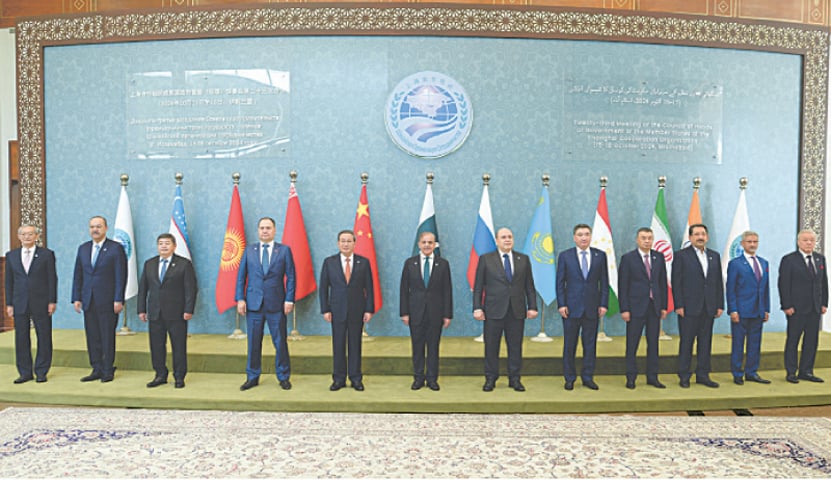In Islamabad, the Shanghai Cooperation Organisation (SCO), led by China and comprising 10 member states, condemned what it labeled as protectionist trade practices by Western nations during a heads of government meeting on Wednesday. The joint statement, signed by countries including China, Russia, Iran, and India, criticized unilateral sanctions, particularly in light of restrictions faced by member states Iran and Russia.
The SCO statement emphasized the importance of combating trade measures that contravene World Trade Organization (WTO) rules. This came amid growing tensions between Beijing and Western countries, including the United States and Canada, which have raised tariffs on Chinese products like electric vehicles and steel. The European Union is also expected to implement similar tariffs, escalating the trade standoff.
The meeting also highlighted the Belt and Road Initiative (BRI), with Pakistan’s Prime Minister Shehbaz Sharif advocating for its expansion. The BRI, a cornerstone of China’s global infrastructure strategy, has invested over $1 trillion in projects across more than 150 countries, aiming to connect Asia with Africa and Europe. Prime Minister Sharif underscored the BRI’s role in regional cooperation and integration, with Pakistan’s China-Pakistan Economic Corridor (CPEC) serving as a prime example.
The SCO further reiterated its stance against unilateral sanctions, citing their adverse effects on third-party nations. The Western sanctions on Iran and Russia, both SCO members with substantial energy resources, have deterred smaller nations from trade, while larger economies like China and India continue energy imports. Pakistan, though energy-strapped, has refrained from purchasing fuel from Iran due to concerns over U.S. sanctions, stalling projects like the proposed gas pipeline.
As geopolitical tensions rise, the SCO’s joint statement reflects its members’ collective pushback against perceived Western trade restrictions, advocating for a more connected Eurasian region through initiatives like the BRI.


